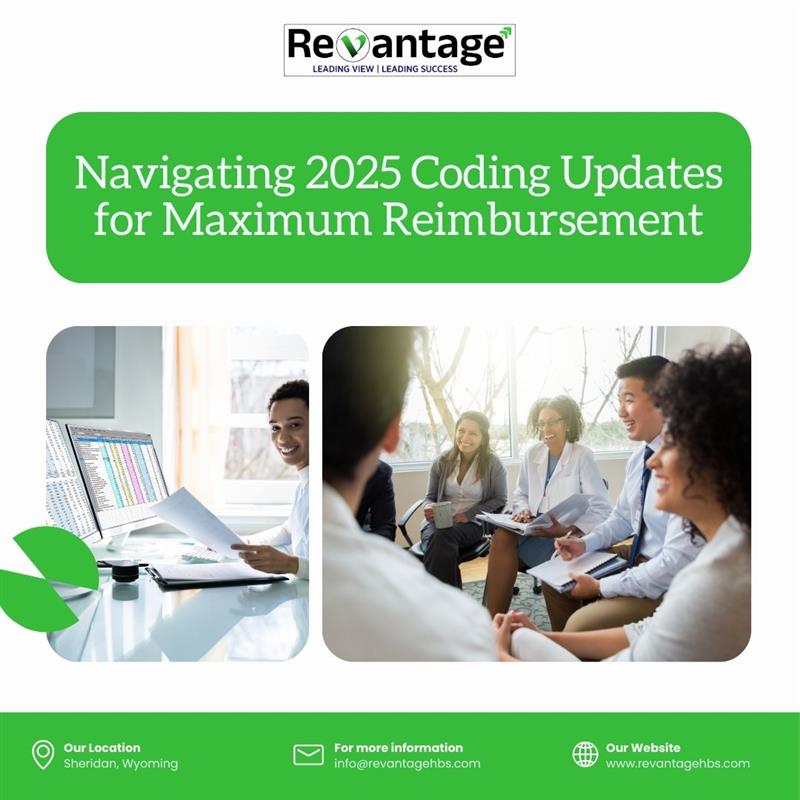CPT Code 93306
Accurate medical billing is essential for healthcare providers to ensure timely reimbursement and compliance with industry standards. CPT code 93306, which covers a complete transthoracic echocardiogram (TTE) with Doppler and color flow studies, is critical in cardiology billing. This comprehensive guide explores the description, applications, modifiers, and billing guidelines for CPT code 93306, offering insights to help providers optimize their revenue cycle. For professional billing support, explore services at Revantage Healthcare.
CPT Code 93306 Description
CPT code 93306 is assigned to a complete transthoracic echocardiogram, a non-invasive ultrasound procedure that produces detailed two-dimensional (2D) images of the heart’s anatomy. This code encompasses a thorough evaluation of all heart chambers, valves, the adjacent aorta, and the pericardium. The inclusion of spectral and color Doppler studies distinguishes it, as these measure the speed and direction of blood flow to detect abnormalities like valve dysfunction or abnormal flow patterns. Unlike CPT code 93307, which excludes Doppler, CPT code 93306 for an echocardiogram ensures a comprehensive assessment, making it vital for diagnosing complex cardiac conditions.
Scenarios Where CPT Code 93306 is Applicable
CPT code 93306 is used in various clinical scenarios where a detailed cardiac evaluation is necessary. Below are key applications:
Heart Murmurs Assessment
Heart murmurs, characterized by unusual sounds during a heartbeat, may indicate valve issues or congenital defects. A TTE with Doppler, billed under CPT code 93306, visualizes heart structures and blood flow to pinpoint the murmur’s cause, guiding treatment decisions.
Chest Pain Evaluation
In emergency or outpatient settings, chest pain may signal cardiac issues like myocardial infarction or pericarditis. CPT code 93306 is used to perform a complete TTE, assessing heart function, valves, and blood flow to diagnose the underlying cause and inform urgent care plans.
Pre-Operative Cardiac Evaluation
Patients with known heart conditions or risk factors require cardiac clearance before major surgeries. CPT code 93306 facilitates a comprehensive TTE to evaluate heart function, identifying risks related to anesthesia or surgical stress, ensuring patient safety.
Applicable Modifiers for CPT Code 93306
Proper use of modifiers with CPT 93306 ensures precise billing and reimbursement:
Modifier 26: ( Professional Component ) Use modifier 26 with CPT Code 93306 when billing only for the professional component of the transthoracic echocardiogram (TTE). This applies when the provider interprets the ultrasound images and prepares a report but does not perform the procedure itself.
Modifier TC: ( Technical Component ) Modifier TC is applied to CPT Code 93306 when billing solely for the technical component of the TTE. This covers the use of ultrasound equipment, staff, and the execution of the procedure, excluding the interpretation or reporting.
Modifier 59: ( Distinct Procedural Service ) Modifier 59 denotes a distinct procedural service for CPT Code 93306. Append it when the echocardiogram is performed as a separate service from other procedures on the same day, signaling to the payer that it should be reimbursed independently rather than bundled with other services.
Modifier 76: ( Repeat Procedure by Same Physician ) When the same provider repeats the TTE (with Doppler and color flow, without contrast) covered by CPT Code 93306 on the same day, modifier 76 is used to justify the additional procedure and ensure proper payment for the repeated service.
Modifier 77: ( Repeat Procedure by Another Physician ) If a different physician repeats the TTE covered by CPT Code 93306 on the same day, modifier 77 is added. This informs the payer that the repetition was medically necessary, supporting appropriate reimbursement.
Modifier 91: ( Repeat Clinical Diagnostic Test ) Though rare for TTEs, modifier 91 may be used with CPT Code 93306 if the procedure is repeated for clinical purposes, such as confirming initial findings or monitoring changes in the patient’s condition.
Modifier 52: ( Reduced Services ) Modifier 52 is used with CPT Code 93306 when the TTE is partially completed or its scope is reduced, and no specific CPT code exists for the limited service. Using this modifier when a more precise code is available may lead to claim denials.
Modifier 53: ( Discontinued Procedure ) If the TTE procedure covered by CPT Code 93306 begins but is halted due to patient safety concerns or other uncontrollable circumstances, modifier 53 is appended to reflect the discontinued service.
Providers must adhere to American Medical Association (AMA) and payer guidelines when applying modifiers to avoid claim denials.
Billing and Reimbursement Guidelines
Effective billing for CPT code 93306 requires attention to detail and compliance with payer policies. Key guidelines include:
Ensure Documentation Completeness
Comprehensive documentation is critical to support medical necessity and secure reimbursement. Documentation should include:
• Indication: The clinical reason for the TTE (e.g., chest pain, murmur).
• Views and Measurements: Details of heart structures examined, such as ventricles, atria, valves, and aorta.
• Doppler and Color Flow: Confirmation that these studies were performed, distinguishing 93306 from 93307.
• Interpretation: A detailed report of findings, noting normal or abnormal measurements and their implications.
Follow Specific Payer Guidelines
Payer policies vary, with some requiring pre-authorization or specific documentation. Medicare reimburses CPT code 93306 under the Medicare Physician Fee Schedule (MPFS), but rates depend on geographic location and the local Medicare Administrative Contractor (MAC). Providers should verify coverage criteria with each payer to ensure compliance and timely payments.
Append Appropriate Modifier
Correct modifier usage is essential for accurate billing. For example, use Modifier 26 if billing only for the physician interpretation in a hospital setting, or Modifier TC for the technical component in a facility-owned lab. Incorrect or missing modifiers can lead to claim denials, delaying reimbursement.
Common Billing Pitfalls to Avoid
To optimize billing for CPT code 93306, providers should avoid:
• Incomplete Documentation: Failing to note Doppler and color flow studies may lead to down-coding to 93307.
• Incorrect Modifiers: Using Modifier 91 inappropriately, as it’s less common for echocardiograms.
• Ignoring Payer Rules: Not checking payer-specific requirements can result in denials or audits.
Comparison with Related Codes
Understanding the differences between CPT code 93306 and similar codes is crucial:
• CPT 93307: Covers a complete TTE without Doppler or color flow, used for less comprehensive studies.
• CPT 93308: Used for limited or follow-up TTE studies, focusing on specific heart areas.
• CPT 93303-93304: Applied when congenital heart disease is suspected, unlike 93306 for non-congenital cases. Understanding the differences between CPT code 93306 and similar codes is crucial:
• CPT 93307: Covers a complete TTE without Doppler or color flow, used for less comprehensive studies.
• CPT 93308: Used for limited or follow-up TTE studies, focusing on specific heart areas.
• CPT 93303-93304: Applied when congenital heart disease is suspected, unlike 93306 for non-congenital cases.
Choosing the correct code ensures accurate billing and reduces the risk of claim rejections.
Summary
CPT code 93306 is a cornerstone of cardiology billing, covering complete transthoracic echocardiograms with Doppler and color flow studies. Its applications in assessing heart murmurs, evaluating chest pain, and conducting pre-operative checks make it indispensable. By using appropriate modifiers, maintaining thorough documentation, and adhering to payer guidelines, providers can streamline billing and maximize reimbursement. At Revantage Healthcare, we offer expert medical billing services to navigate the complexities of codes like 93306, helping practices enhance their revenue cycle. Visit revantagehbs.com to learn how we can support your billing needs.
What is the difference between 93306 and 93307?
Both CPT codes 93306 and 93307 pertain to transthoracic echocardiograms (TTE), but they differ in scope:
CPT 93306: Represents a complete TTE that includes two-dimensional imaging, M-mode recording, and both spectral and color Doppler studies. This comprehensive assessment evaluates the heart’s structure and function in detail .
CPT 93307: Denotes a complete TTE without Doppler studies. It includes two-dimensional imaging and M-mode recording but lacks the Doppler components, providing a less detailed evaluation compared to 93306 .AAPC
What documentation is required for 93306?
Proper documentation for CPT 93306 should encompass:
Patient’s name and date of service.
Detailed report of the echocardiogram findings, including two-dimensional imaging, M-mode, spectral Doppler, and color Doppler results.
Interpretation and conclusions drawn by the physician.
Medical necessity for the procedure, supported by relevant clinical indications.AAPC
Ensuring comprehensive and accurate documentation is crucial for reimbursement and compliance purposes
What is included in 93306?
CPT 93306 encompasses a complete transthoracic echocardiogram with the following components:
Real-time two-dimensional imaging of the heart.
M-mode recording to assess cardiac structures.
Spectral Doppler studies to evaluate blood flow velocities.
Color flow Doppler imaging to visualize blood flow patterns.
This comprehensive evaluation provides detailed information about the heart’s anatomy and function .
What is Medicare reimbursement for an echocardiogram?
As of the 2023 Medicare Physician Fee Schedule, the reimbursement rates for CPT 93306 are:
Global Payment: $194.06
Technical Component (TC): $127.61
Professional Component (26): $66.45American Society of Echocardiography
These rates are subject to change and may vary based on geographic location and other factors .
Does an echocardiogram require prior authorization with Medicare?
For Original Medicare (Part B) beneficiaries, prior authorization is generally not required for echocardiograms, including CPT 93306, provided the test is deemed medically necessary .
However, for those enrolled in Medicare Advantage (Part C) plans, prior authorization requirements may vary by plan. It’s advisable to consult the specific Medicare Advantage plan’s guidelines to determine if prior authorization is necessary.






